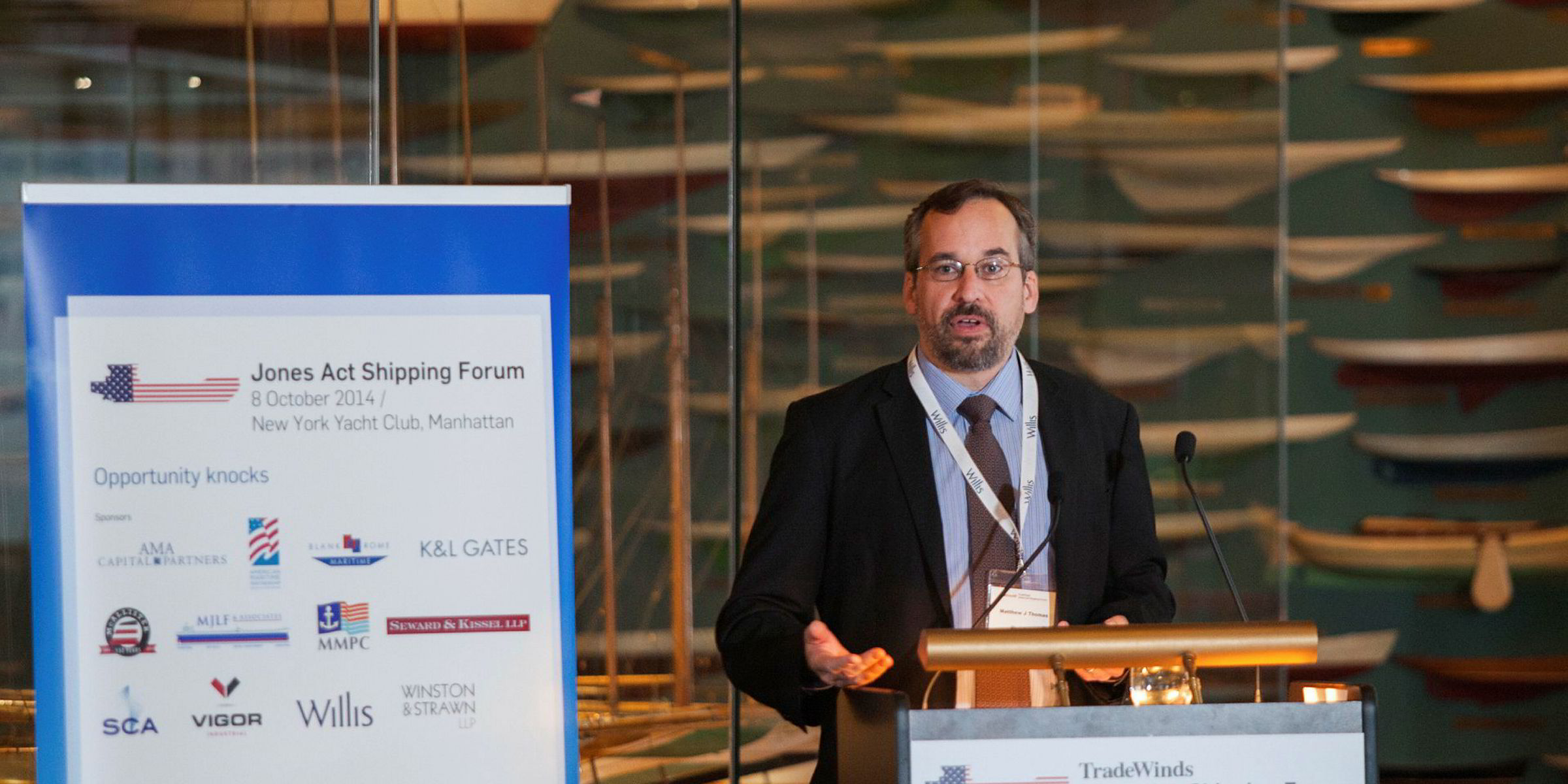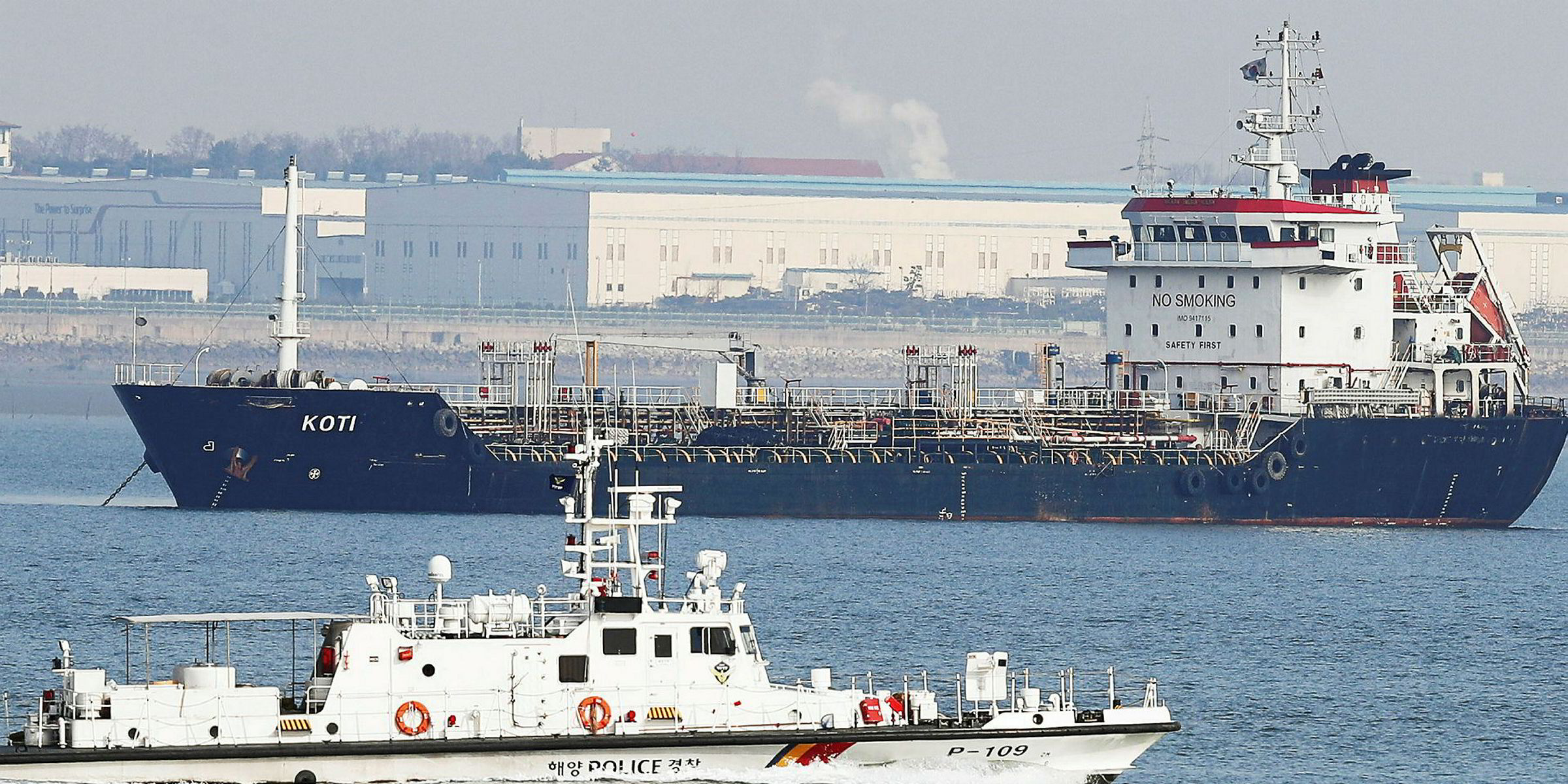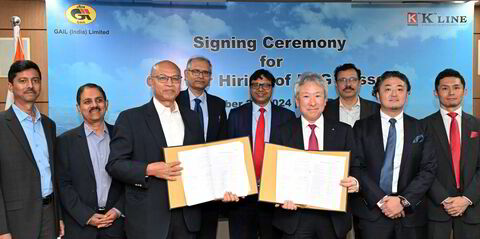The quick action to clamp down on oil shipments to North Korea was followed by an equally swift response from flag states and protection-and-indemnity clubs to cut ties with any ship implicated in the trade.
The move comes as third-party service providers face more potential legal risk in dealing with ships, owners or charterers doing business with North Korea.
The Panama Maritime Authority said last week that it will cancel the registration of the 27,377-dwt bulker Orient Shenyu (built 2009) and the 8,008-dwt product tanker Koti (built 2008).
The Orient Shenyu is now registered by the Palau International Ship Registry, which said it had flagged the vessel only after any North Korean port call had taken place.

The Orient Shenyu was on a list of ships that the US said had dealings with North Korea.
The Koti, which was not on that list, was seized by South Korea over its role in shipping oil to North Korea. West of England Ship Owners also pulled its reinsurance coverage of the Koti, while an unidentified Chinese P&I club withdrew primary coverage.
West of England declined to comment. Efforts to reach the Panamanian and Palau registries were unsuccessful.
Blank Rome lawyer Matthew Thomas, who specialises in compliance issues, says registries, class societies and P&I clubs have improved their vetting of ships for complying with sanctions over the last decade, largely in response to the multi-year sanctions on Iran.
However, the improvement in risk management does not mean those service providers have the responsibility of monitoring ship transits or charter parties.
'Playing policeman'
“All of these organisations have added a lot of compliance expertise to stay on top of sanctions issues,” Thomas says. “But it’s not really their job to play policeman for the US.”
Owners and charterers need to be careful. Even if your ship has not going anywhere near North Korea, you could end up being blacklisted
He describes upfront vetting as even more crucial now, due to the secondary sanctions that were imposed in a US law passed in August.
The Countering America's Adversaries Through Sanctions Act adds new rules to existing sanctions that allow the US government to go after entities that knowingly insure or register North Korean ships.
In addition, US President Donald Trump signed an executive order extending what is known as the 180-day rule. Originally designed for Cuba, the rule bars any ship from making a US port call for a minimum of 180 days after calling on North Korea.
Thomas says the 180-day rule for North Korea could affect a ship even if it does not directly make a port call. A ship-to-ship transfer with a vessel that had made such a port call or was chartered by entities that do business with North Korea could also make problems for owners.
“It’s actually a lot broader than the original 180-day rule,” he says. “That’s an area where owners and charterers need to be careful. Even if your ship has not gone anywhere near North Korea, you could end up being blacklisted.”

But the ability of the US to go after third parties linked to North Korea can still be difficult if no connection to the US can be found. Bruce Paulsen, a maritime litigation attorney at Seward & Kissel, says Washington passed laws to go after foreign entities dealing with Iran, but such a law has not yet been fully implemented for North Korea.
The US “would have to find a hook to hang those sanctions on”, Paulsen adds. “With no connection to the US, I don’t see how the government gets to them.”
In the instance of P&I clubs, Paulsen says they have the ability to get out of a contract with a vessel should the owner violate sanctions.
But Thomas says it may not always be so easy, as the sanctions on Iran showed. He points to a case involving the Islamic Republic of Iran Shipping Lines, which brought a suit against Steamship Mutual for not paying a claim related to a bunker spill.
Court ruling
Steamship Mutual argued that it did not have to provide cover because of the sanctions. But a judge in London ruled against the insurer, saying the sanctions did not alter all responsibility for indemnifying against claims.
Paulsen and Thomas believe the best course is to know your customer thoroughly before entering a commercial relationship. But the difficulties of ensuring that compliance on a real-time basis are too difficult for any firm.
“Doing due diligence can become exponentially a lot harder,” Thomas says. “Learning where a ship has done business would require a lot of vessel tracking.”



